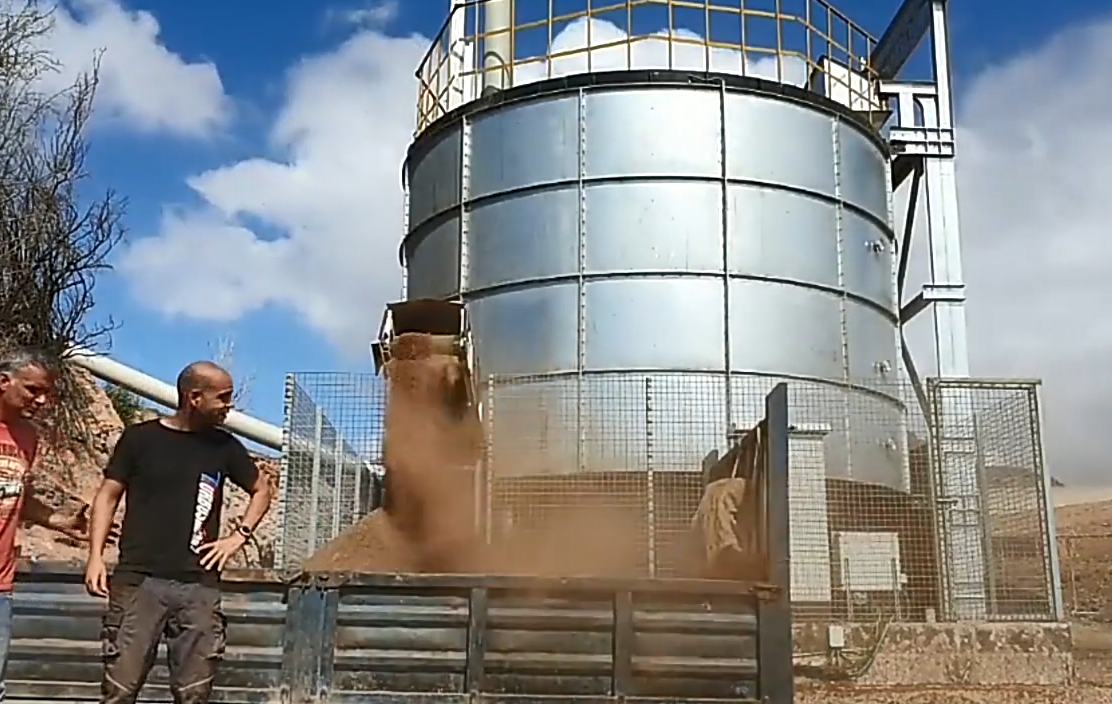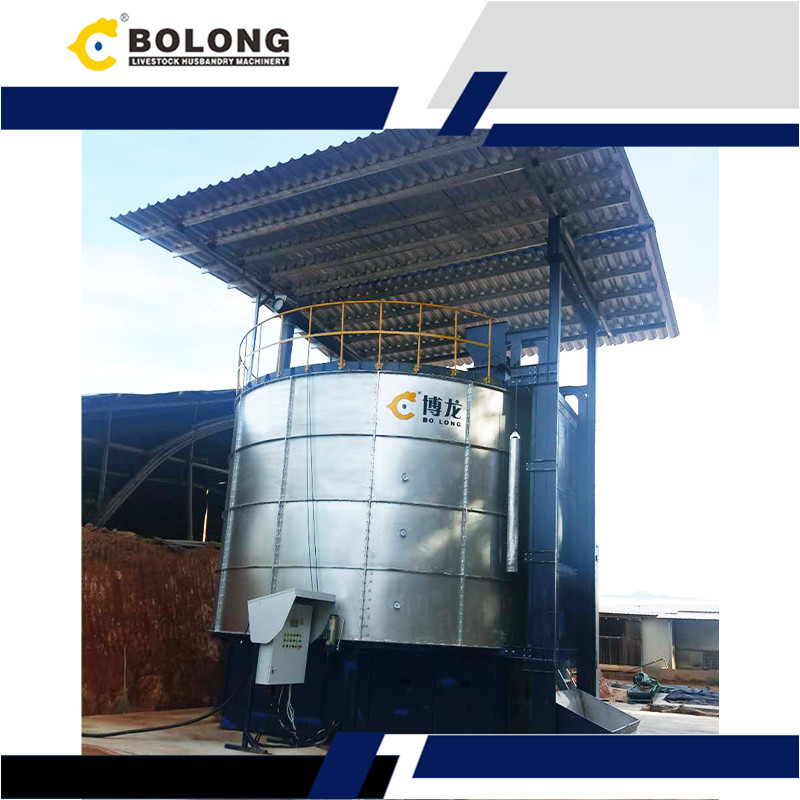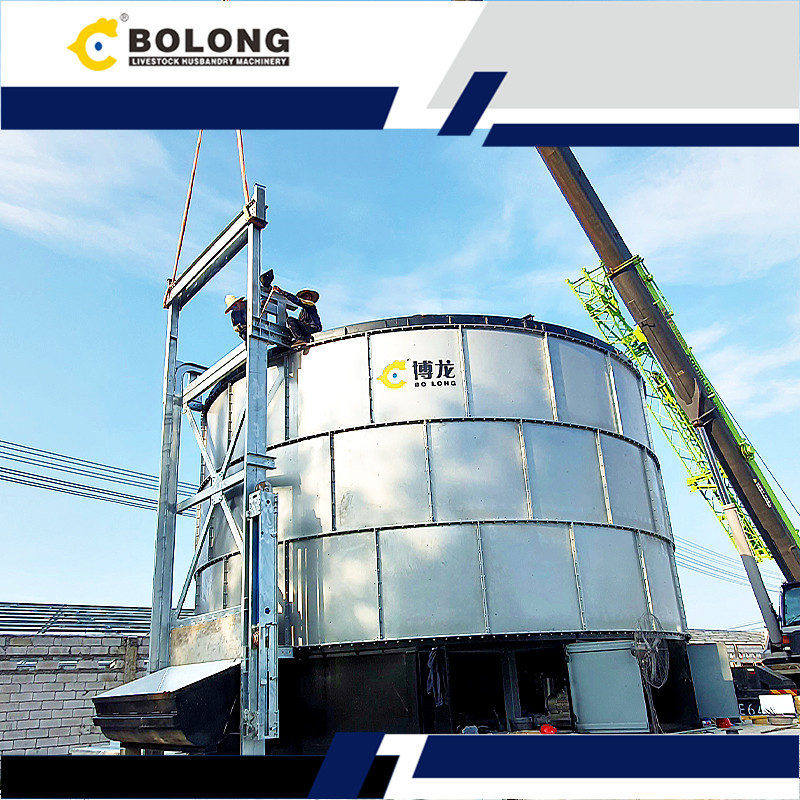Introduction

Organic fertilizers play a vital role in sustainable agriculture, providing essential nutrients to the soil while reducing the reliance on chemical fertilizers. Fermentation tanks are central to the production of these organic fertilizers, converting organic waste into nutrient-rich compost. This article examines the critical role of fermentation tanks in the organic fertilizer production process.
Organic Waste Conversion
Fermentation tanks are designed to process various types of organic waste, including animal manure, kitchen scraps, and agricultural residues. The conversion process involves several key steps:
Collection of Organic Waste: Organic waste is collected from farms, households, or industrial facilities and transported to the fermentation site.
Loading into Fermentation Tanks: The waste is loaded into the fermentation tanks. Bolong tanks are equipped with automatic loading systems that streamline this process.
Anaerobic Fermentation: Inside the tank, anaerobic microorganisms break down the organic matter, producing biogas and compost. This process typically takes about 7 days in Bolong tanks.
Temperature Regulation: Maintaining an optimal temperature is crucial for efficient fermentation. Bolong tanks use high-performance insulation materials and heat exchange systems to ensure consistent internal temperatures.
Oxygen Management: While anaerobic fermentation does not require oxygen, some processes may need controlled oxygen supply. Bolong tanks use high-pressure vortex air pumps to provide the necessary oxygen.
Discharge of Compost: After fermentation, the compost is discharged from the tank. Bolong tanks feature automatic discharge systems that transport the finished compost to storage or further processing units.
Enhancing Soil Health
The compost produced by fermentation tanks is rich in organic matter and essential nutrients, making it an excellent soil amendment. It enhances soil structure, increases water retention, and promotes the growth of beneficial microorganisms. This, in turn, improves soil fertility and crop yields.
Reducing Environmental Impact
Fermentation tanks play a significant role in reducing the environmental impact of organic waste. By converting waste into valuable compost, they minimize the need for landfills and reduce greenhouse gas emissions. Bolong tanks are designed to prevent odor leakage and minimize environmental pollution, contributing to a cleaner and healthier environment.
Supporting Sustainable Agriculture
The use of organic fertilizers produced by fermentation tanks supports sustainable agriculture by reducing the reliance on chemical fertilizers. Chemical fertilizers can degrade soil health over time and contribute to water pollution. In contrast, organic fertilizers improve soil health and reduce the risk of environmental contamination.
Economic Benefits
Fermentation tanks offer several economic benefits:
Cost Savings: By converting waste into valuable compost, fermentation tanks reduce waste disposal costs and create a valuable product that can be used or sold.
Increased Crop Yields: The use of organic fertilizers enhances soil fertility, leading to increased crop yields and higher profitability for farmers.
New Revenue Streams: Farms and industrial facilities can generate additional revenue by selling the compost produced by fermentation tanks.
Advanced Technology and Efficiency
Bolong fermentation tanks are designed with advanced technology to maximize efficiency and productivity. Key features include:
Automated Control Systems: Bolong tanks are equipped with PLC control systems that allow for both automatic and manual operation, making them user-friendly and reducing the need for constant monitoring.
Energy Efficiency: The advanced heat exchange system and insulation materials used in Bolong tanks significantly reduce energy consumption, making them cost-effective and environmentally friendly.
Durability and Longevity: Constructed from high-quality materials, including 304 stainless steel, Bolong fermentation tanks are highly resistant to corrosion, ensuring a long service life.
Conclusion
Fermentation tanks are essential tools in the production of organic fertilizers, playing a crucial role in converting organic waste into valuable compost. Their use enhances soil health, reduces environmental impact, and supports sustainable agriculture. Bolong fermentation tanks, with their advanced technology and robust design, offer an efficient and reliable solution for organic waste management, contributing to a more sustainable and economically viable agricultural system.


